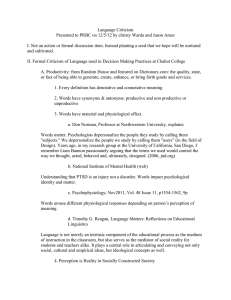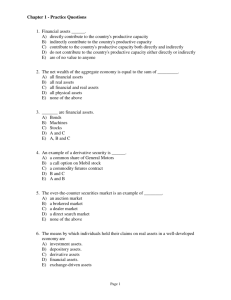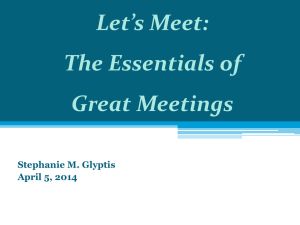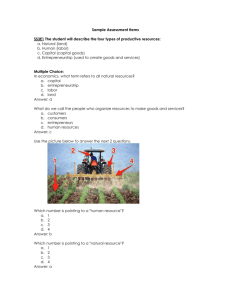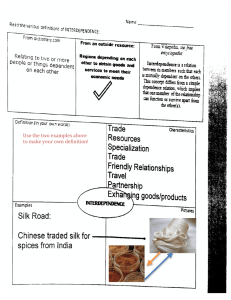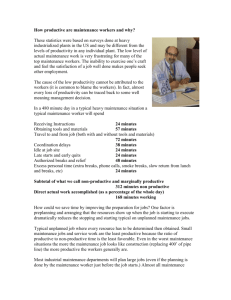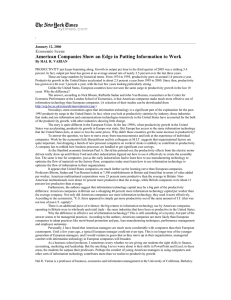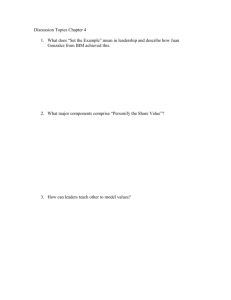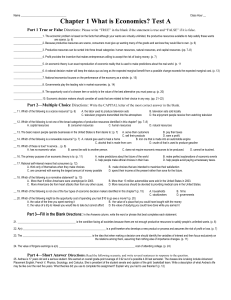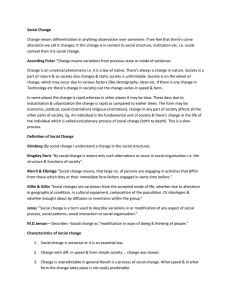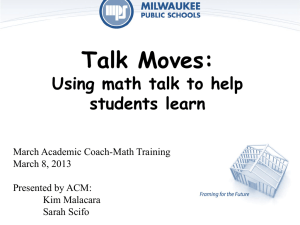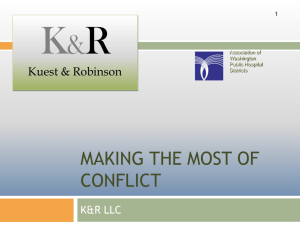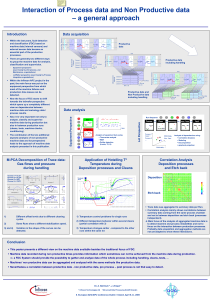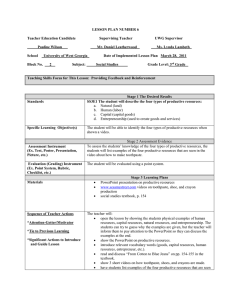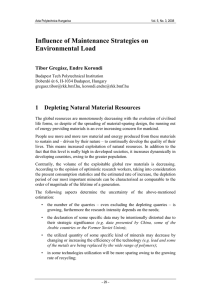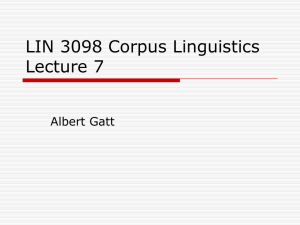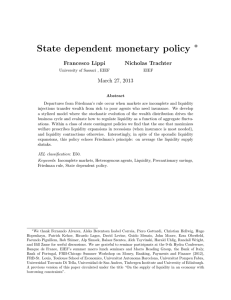How to Ask Productive Questions - for IGL workshop
advertisement
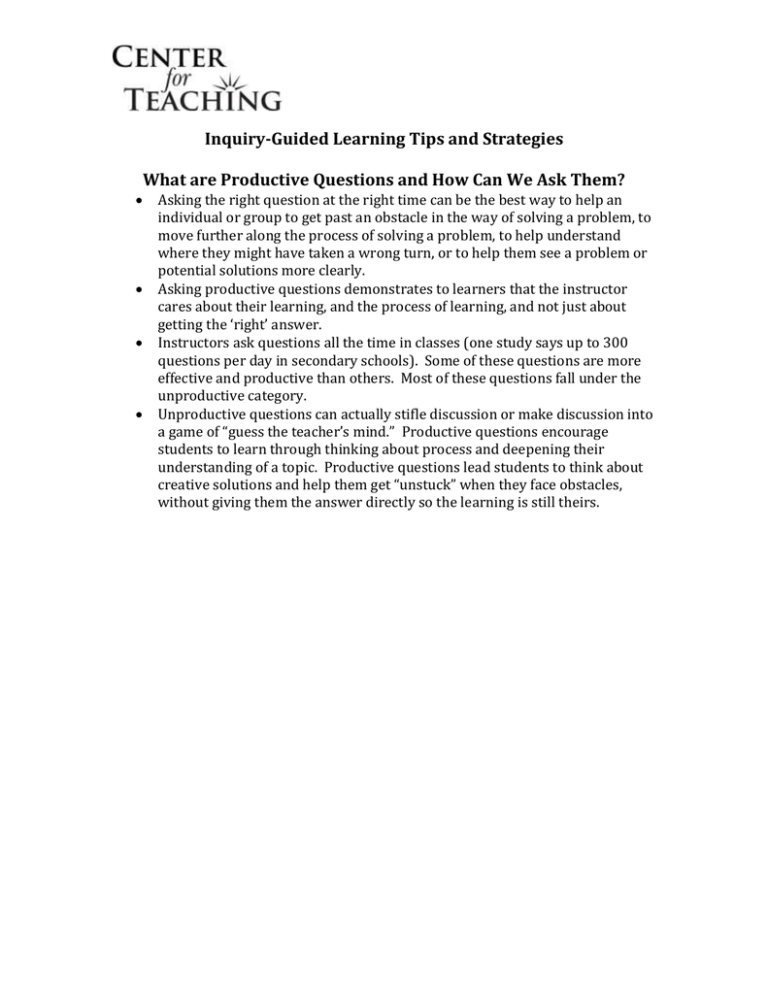
Inquiry-Guided Learning Tips and Strategies What are Productive Questions and How Can We Ask Them? Asking the right question at the right time can be the best way to help an individual or group to get past an obstacle in the way of solving a problem, to move further along the process of solving a problem, to help understand where they might have taken a wrong turn, or to help them see a problem or potential solutions more clearly. Asking productive questions demonstrates to learners that the instructor cares about their learning, and the process of learning, and not just about getting the ‘right’ answer. Instructors ask questions all the time in classes (one study says up to 300 questions per day in secondary schools). Some of these questions are more effective and productive than others. Most of these questions fall under the unproductive category. Unproductive questions can actually stifle discussion or make discussion into a game of “guess the teacher’s mind.” Productive questions encourage students to learn through thinking about process and deepening their understanding of a topic. Productive questions lead students to think about creative solutions and help them get “unstuck” when they face obstacles, without giving them the answer directly so the learning is still theirs. Less Effective Questions Vague – “how’s it going?”; “are you having any problems?” More Effective Questions Specific- Closed – yes/no or single word answers – “do you know what you are doing next?” Open ended – Discourage (implicitly or explicitly) student questions – “do you have any questions?” Encourage student questions – Offer solutions – “are you going to use a wiki for that student participation piece?” Offer suggestions – Stay at the lower levels of Bloom’s Taxonomy (knowledge and comprehension) – “what is the definition of X?” Strive to move up the levels of Bloom’s Taxonomy Have a clear “right” answer – “are you going to integrate technology into that lesson?” Encourage multiple possible answers or no “right” answer Potential Questions to Ask Student Groups 1. 2. 3. 4. What process have you been using so far to solve this problem? What obstacles have you run into so far? How did you solve them? What are your next steps? How are you using (or considering using) X (a model, a website, a textbook source, a primary source, context information, lab materials, etc.) in this activity? Why have you made this choice? 5. How is this activity helping you learn this material? 6. What resources do you need to complete this activity? 7. How have you divided up the group work? How did you make that decision? Dos and Don’ts for Asking Questions During Work Time Do - Spend at least a few minutes with each group or individual you visit; sit with the group and join their conversation - Listen to the group discussion first, then ask a question when it seems appropriate - Offer suggestions only if asked; try to frame suggestions as questions “Have you tried X?” “Have you considered Y?” - Ask questions about process (what have you been working on, what are your next steps) - Jot down notes about how your students are working, which groups seem to be making progress, which groups are having problems, how are they creatively solving problems, or anything else that you find useful to assess group work and progress - Ask specific and open questions – and ask follow up and/or clarification questions when possible or needed - Divide and conquer – try to spread yourselves out around the room so there is no more than one instructor or TA at a group or table, and as many groups as possible have attention from one of us - Try to get “off task” groups back on task by asking questions about their projects Don’t - Do “drive-by” observations or hover off to the side - Interrupt a productive conversation just to ask a question - Give a solution to a problem or question unless it is a technical knowledge or procedural type question - Spend too much time with any one group or individual – you should be able to work with multiple groups during the working time; don’t let anyone dominate your time – office hours or email are great ways to continue a conversation with a student who needs extra help - Ask closed or vague questions Clump with other instructors or TAs

